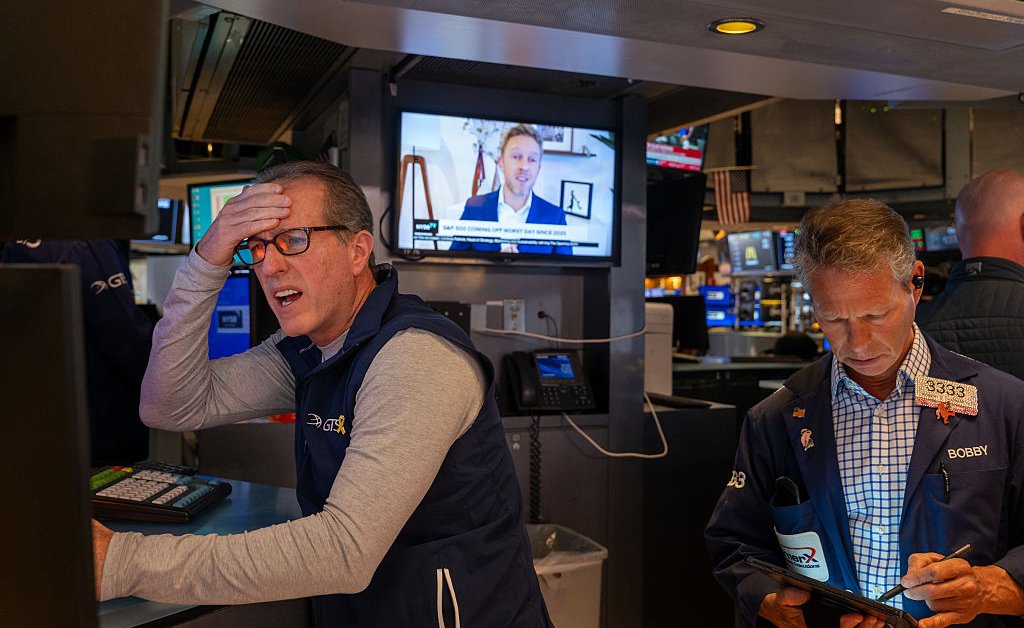Climate Goals vs. Recession: Are They Compatible? A Balancing Act for Global Economies
The global economy faces a daunting double challenge: achieving ambitious climate goals while simultaneously navigating the risk of recession. The urgency of mitigating climate change is undeniable, yet the economic fallout of drastic action is a major concern for governments and businesses alike. The question on everyone's mind: are these two seemingly conflicting priorities truly compatible?
The Urgency of Climate Action:
The scientific consensus is clear: we need immediate and substantial reductions in greenhouse gas emissions to avoid the most catastrophic consequences of climate change. The IPCC's latest reports paint a stark picture, highlighting the escalating risks of extreme weather events, sea-level rise, and biodiversity loss. Meeting the targets set by the Paris Agreement – limiting global warming to well below 2 degrees Celsius, preferably to 1.5 degrees Celsius – requires a rapid and transformative shift towards a low-carbon economy.
The Economic Headwinds of Transition:
The transition to a green economy, however, presents significant economic challenges. The costs of decarbonizing industries, investing in renewable energy infrastructure, and adapting to the impacts of climate change are substantial. For some sectors, especially those heavily reliant on fossil fuels, the shift can mean job losses and economic disruption. This, coupled with existing economic vulnerabilities like inflation and geopolitical instability, raises concerns about the potential for a recession.
Finding Common Ground: Sustainable Economic Growth
The narrative that climate action necessitates economic hardship is increasingly outdated. A growing body of research suggests that pursuing climate goals can actually stimulate economic growth. This involves focusing on:
- Green Investments: Investing in renewable energy, energy efficiency, and sustainable infrastructure creates jobs and drives innovation. This represents a significant opportunity for economic growth and development. Examples include the burgeoning solar and wind energy sectors, as well as advancements in green building technologies.
- Technological Innovation: The transition to a low-carbon economy fuels technological innovation, leading to the creation of new industries and job opportunities in areas such as electric vehicles, battery technology, and carbon capture.
- Policy Incentives: Smart government policies, such as carbon pricing mechanisms and subsidies for green technologies, can incentivize sustainable practices while mitigating economic risks. These policies can help businesses adapt and thrive in a changing market.
- Circular Economy: Shifting to a circular economy, emphasizing reuse, recycling, and waste reduction, minimizes environmental impact while creating economic opportunities. This model offers significant potential for resource efficiency and job creation.
Navigating the Path Forward:
Successfully balancing climate goals and economic stability requires a carefully planned and phased approach. This includes:
- Just Transition Policies: Implementing policies that support workers and communities affected by the transition to a green economy is crucial. This may involve retraining programs, financial assistance, and infrastructure investments in affected regions.
- International Cooperation: Climate change is a global challenge requiring international cooperation. Shared efforts in technology transfer, financing, and policy coordination are essential to ensure a fair and effective transition.
- Long-Term Vision: A long-term perspective is crucial. While short-term economic impacts may be challenging, the long-term benefits of climate action—avoiding catastrophic climate damage and securing a sustainable future—far outweigh the costs of inaction.
Conclusion:
The choice isn't between climate goals and economic stability; it's about finding the right balance. By investing in green technologies, implementing smart policies, and fostering international cooperation, we can create a sustainable economic future that addresses both the climate crisis and economic prosperity. Ignoring the climate crisis will ultimately lead to far greater economic instability in the long run. The time for action is now.
Keywords: Climate change, recession, economic growth, sustainable development, green economy, renewable energy, Paris Agreement, IPCC, carbon pricing, circular economy, just transition.
(Optional) Internal/External Links: You could add links to relevant reports from the IPCC, articles on green investment opportunities, government websites detailing climate policies, etc. Remember to keep links relevant and avoid over-optimization.

